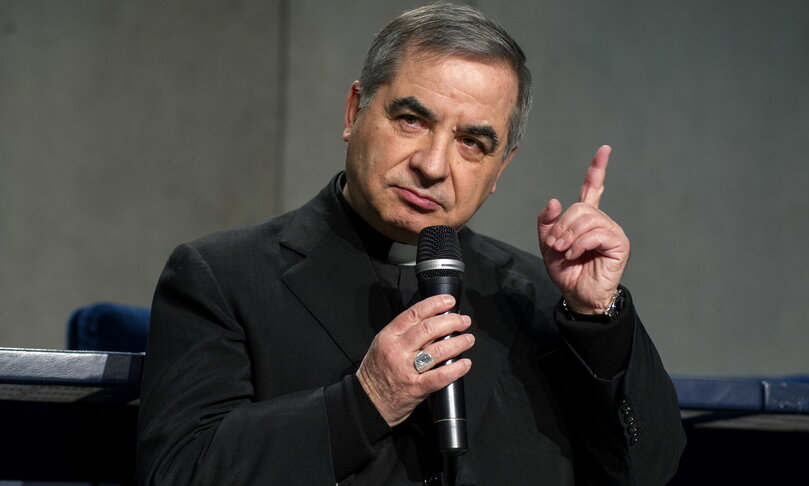Remember Monday's Eurovision Song: A Response To Online Hate

Table of Contents
The Nature of the Online Hate
Types of Hate Speech Observed
The online reaction to Monday's Eurovision song was overwhelmingly negative, with a significant portion of the comments falling squarely into the category of hate speech. This included various forms of abuse targeting both the artist and their performance. Specifically:
- Racist comments targeting the singer's ethnicity: Many comments used derogatory language and harmful stereotypes based on the artist's perceived origin.
- Homophobic slurs based on perceived sexual orientation: The song's themes or the artist's presentation led to a barrage of homophobic insults and attacks.
- Cyberbullying targeting the artist's appearance: Cruel and personal attacks were directed at the singer's physical appearance, body shaming and general insults were prevalent.
- Threats of violence: Some comments went beyond insults and included direct threats of violence against the artist.
- Xenophobic remarks: Comments expressing hatred or prejudice towards the artist's nationality or culture were also prevalent.
Platforms Used for Hate Speech
This online hate wasn't confined to a single platform. The toxic comments spread across various online spaces, making it challenging to contain. The most significant concentration of hate speech was observed on:
- Twitter: The rapid spread of hateful messages was amplified by Twitter's reach.
- Facebook: Facebook comments sections on news articles and fan pages were also flooded with negative and often abusive remarks.
- YouTube comments section: The official music video became a platform for hateful comments and trolling.
- Specific online forums: Certain online forums dedicated to Eurovision discussion became breeding grounds for hate speech, with moderators often failing to adequately control the spread of abuse.
The Scale of the Problem
The scale of the online hate was alarming. While precise numbers are difficult to ascertain, the sheer volume of negative comments, the trending of hateful hashtags, and the widespread media coverage demonstrated the significant impact of this online abuse. The negativity overshadowed the song itself and created a hostile online environment for fans and the artist.
Understanding the Roots of Online Hate
Pre-existing Biases and Prejudice
The intensity of the online hate targeting Monday's Eurovision song highlights the existence of pre-existing biases and prejudices in society. The hateful comments reflected underlying societal issues related to racism, homophobia, xenophobia, and other forms of discrimination. These biases were amplified by the online environment.
The Role of Anonymity and Online Disinhibition
Anonymity plays a significant role in fueling online hate. The lack of face-to-face interaction and the perceived shield of anonymity emboldens individuals to express views they would likely hesitate to share in person. This online disinhibition effect leads to a significant escalation of hate speech.
The Spread of Misinformation
In some cases, the negative response was fueled by misinformation or deliberately false narratives about the song or the artist. These false narratives were amplified through social media, contributing to the overall toxic online environment surrounding Monday's Eurovision performance. Fact-checking and media literacy are crucial tools in combatting this issue.
Combating Online Hate Targeting Eurovision Performances
The Role of Social Media Platforms
Social media platforms bear a significant responsibility in addressing online hate. They need to implement stronger moderation policies, improve their content filtering algorithms, and take swift action to remove hateful comments and ban abusive accounts. Increased transparency in their moderation efforts is also essential.
The Importance of Reporting Hate Speech
Reporting hate speech is crucial. Users should actively report hateful comments and utilize the reporting mechanisms provided by social media platforms. Reporting allows platforms to track patterns of abuse and take appropriate action. Here are links to reporting mechanisms for some major platforms: [Insert links to reporting mechanisms for Twitter, Facebook, YouTube, etc.].
Promoting Positive Online Discourse
Countering online hate requires proactive efforts to promote positive online discourse. This includes:
- Promoting positive fan interactions: Encouraging respectful comments and celebrating the diversity of musical talent.
- Using positive hashtags: Creating and utilizing positive hashtags to counter the spread of hate speech.
- Creating a supportive online community: Building online communities where fans can express their support for the artist and their work in a positive and safe environment.
The Power of Empathy and Understanding
Combating online hate requires empathy and understanding. We must strive to engage with diverse perspectives and cultures and recognize the impact that our words have on others. Celebrating the rich tapestry of musical talent showcased in the Eurovision Song Contest is crucial, and fostering an environment that respects this diversity is essential.
Conclusion
The online hate targeting Monday's Eurovision song serves as a stark reminder of the pervasiveness of online hate and the urgent need for proactive solutions. The scale of the problem, fueled by pre-existing biases, anonymity, and the spread of misinformation, necessitates a multi-pronged approach. Remember Monday's Eurovision song not for the hate it received, but for the importance of promoting respectful online interactions and celebrating the diversity of musical talent. Report hate speech, spread positivity, and help create a more inclusive online community around Eurovision and beyond. Let's actively work to ensure future Eurovision performances are celebrated without the shadow of online hate. Let's remember Monday's Eurovision song as a catalyst for positive change in our online world.

Featured Posts
-
 Becciu Il Processo D Appello Inizia Il 22 Settembre
Apr 30, 2025
Becciu Il Processo D Appello Inizia Il 22 Settembre
Apr 30, 2025 -
 Trumps Comments On Us Canada Interdependence Ahead Of Canadian Vote
Apr 30, 2025
Trumps Comments On Us Canada Interdependence Ahead Of Canadian Vote
Apr 30, 2025 -
 Chung Ket Giai Bong Da Sinh Vien Nhung Cu Sut Mo Man Soi Dong
Apr 30, 2025
Chung Ket Giai Bong Da Sinh Vien Nhung Cu Sut Mo Man Soi Dong
Apr 30, 2025 -
 Yankees Vs Guardians Analyzing Clevelands Series Win
Apr 30, 2025
Yankees Vs Guardians Analyzing Clevelands Series Win
Apr 30, 2025 -
 Norwegian Cruise Line Holdings Ltd Nclh Earnings Beat Fuels Stock Surge
Apr 30, 2025
Norwegian Cruise Line Holdings Ltd Nclh Earnings Beat Fuels Stock Surge
Apr 30, 2025
